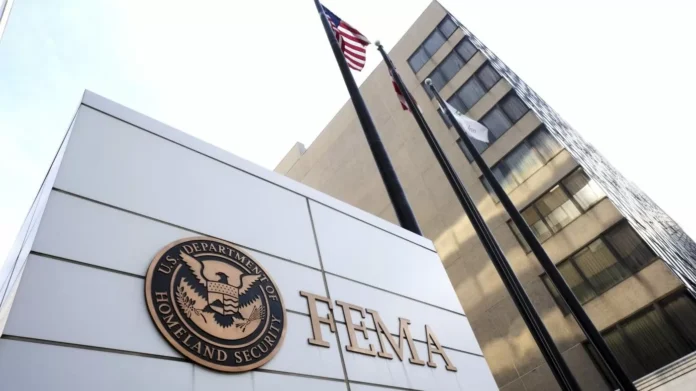President Trump and Homeland Security Secretary Kristi Noem have recently announced their plans to make significant changes to the Federal Emergency Management Agency (FEMA). In a joint statement, they outlined their intentions to eliminate the agency “as it exists today” and to reduce the amount of funding provided to states that are affected by disasters. This bold move has sparked a lot of discussion and debate, with many wondering what this means for the future of disaster relief in the United States.
The decision to overhaul FEMA comes as part of the Trump administration’s efforts to streamline and improve the efficiency of government agencies. President Trump has long been a vocal critic of FEMA, citing its bloated bureaucracy and slow response times as major issues. He has repeatedly expressed his desire to see the agency restructured and reformed, and it seems that his vision is finally coming to fruition.
Under the proposed changes, FEMA will be replaced by a new agency that will focus solely on emergency management and disaster relief. This new agency will be leaner and more efficient, with a clear mandate to provide timely and effective assistance to those in need. It will also be better equipped to handle the ever-increasing number of natural disasters that have been plaguing the country in recent years.
One of the most significant changes that President Trump and Secretary Noem hope to implement is the reduction of funding to states that are hit by disasters. This move has been met with some criticism, with many arguing that it will leave states vulnerable and ill-prepared to deal with the aftermath of a disaster. However, the administration has assured that this reduction in funding will be accompanied by a more efficient and targeted approach to disaster relief. This means that the money that is allocated will be used more effectively, resulting in better outcomes for those affected by disasters.
Furthermore, the administration has also emphasized the importance of states taking responsibility for their own disaster preparedness and response. This is in line with the belief that the federal government should not be solely responsible for disaster relief, and that states should play a more active role in mitigating and responding to disasters. By reducing funding to states, the administration hopes to encourage them to take a more proactive approach to disaster management, which will ultimately benefit their citizens.
President Trump and Secretary Noem have also expressed their desire to “wean off” of FEMA. This does not mean that the agency will be completely eliminated, but rather that it will be transformed into a more efficient and effective organization. The new agency will work closely with state and local governments, as well as with private organizations, to ensure that disaster relief efforts are coordinated and streamlined. This will not only result in faster response times but also in better outcomes for those affected by disasters.
The proposed changes to FEMA have been met with a mix of excitement and skepticism. While some applaud the administration’s efforts to reform the agency, others are concerned about the potential consequences of reducing funding to states. However, one thing is clear – the current system is not working, and something needs to be done to improve it. President Trump and Secretary Noem should be commended for their bold and decisive action in addressing this issue.
In conclusion, the changes that President Trump and Secretary Noem hope to make to FEMA are a step in the right direction. By eliminating the agency “as it exists today” and reducing funding to states, they are sending a clear message that the current system is not sustainable. The new agency that will replace FEMA will be more efficient, more effective, and better equipped to handle the challenges of disaster relief. It is time for a change, and with these reforms, the United States will be better prepared to face any future disasters that may come its way.

